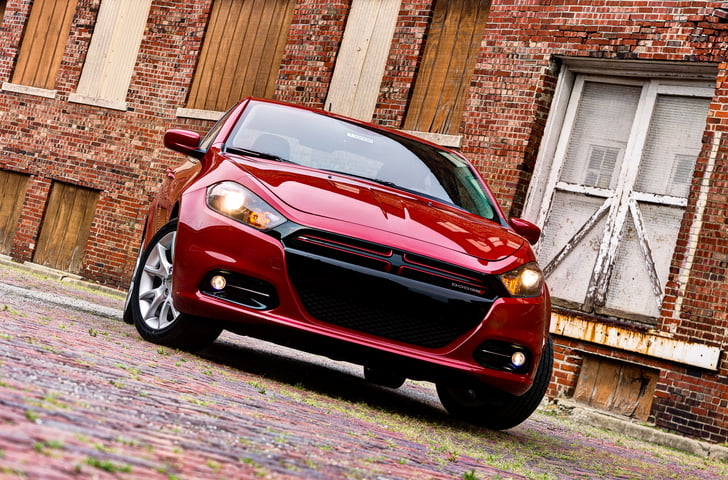 Whether you’ve filed for bankruptcy or thinking about it, you might want to know what happens to your car loan after Chapter 7 discharge. You have several options open to you for keeping or surrendering your car. The option you choose ultimately depends on your ability to pay your car loan, the value of your car, and how much you want to keep it.
Whether you’ve filed for bankruptcy or thinking about it, you might want to know what happens to your car loan after Chapter 7 discharge. You have several options open to you for keeping or surrendering your car. The option you choose ultimately depends on your ability to pay your car loan, the value of your car, and how much you want to keep it.
To learn more about what you can do with your car loan after Chapter 7 bankruptcy discharge, contact a skilled bankruptcy attorney at Allmand Law Firm, PLLC today.
When a debtor files Chapter 7 bankruptcy, they have several options for handling the debt associated with their car:
Car Loan After Chapter 7 Discharge Option #1: Surrendering Your Car
The first option for debtors in Chapter 7 bankruptcy is the surrender of their car and the discharge of their car loan balance. Chapter 7 bankruptcy allows you to have your loans discharged by giving up your possessions. So, you have the option of walking away from your car loan by surrendering your car.
This is a desirable option if you have other affordable options for going to and from work or school. For example, you may choose to use public transportation, carpools, and taxis/Uber/Lyft. Surrendering your car also makes sense if you aren’t able to make your loan payments or can afford a less expensive one.
If you choose this option, the vehicle financer will auction off the car. If there is a balance, that balance will be discharged by the bankruptcy trustee. After the Chapter 7 bankruptcy case is closed, the car loan balance on the debtor’s credit report will show zero. It will also show a discharged in bankruptcy status.
However, what usually happens is that the debtor keeps the car and continues to make payments after bankruptcy although they have no legal obligation to do so. Why? Well, the vehicle financer really does not want the car back, so what they will often do is allow the debtor to keep the car if they continue making payments. Most vehicle financers will report these post-bankruptcy payments to the credit bureau; but there are some vehicle financers who will not and might insist that the debtor sign a reaffirmation agreement.
If you do not want your car loan after Chapter 7 discharge, you will need to have your bankruptcy attorney list your lender and indicate that you intend to surrender the car on an official form called the Statement of Intention for Individuals Filing Under Chapter 7. When you make the decision to surrender your car, you are giving the lender the right to auction it off. In exchange, any balance on your car loan will be discharged.
Car Loan After Chapter 7 Discharge Option #2: Keeping Your Car
 You also have the option of keeping your car after Chapter 7 bankruptcy discharge. Chapter 7 bankruptcy law provides exemptions for certain types of property, which allows you to keep them. It also gives you the right to redeem or reaffirm your car loan.
You also have the option of keeping your car after Chapter 7 bankruptcy discharge. Chapter 7 bankruptcy law provides exemptions for certain types of property, which allows you to keep them. It also gives you the right to redeem or reaffirm your car loan.
Since some vehicle financers insist that the debtor sign a reaffirmation agreement if they want to keep their car, some debtors may be forced to reaffirm their car loan debt, if they want to keep their vehicle after bankruptcy. A reaffirmation agreement basically states that a debtor agrees to pay a debt after bankruptcy. Failure to pay the debt after bankruptcy when a debtor has signed a reaffirmation agreement could result in creditor collections actions and lawsuits.
In many states, including Texas, you can protect the equity you have in your car. The Texas motor vehicle exemption allows anyone with a driver’s license to protect one motor vehicle per licensed household member through Chapter 7 discharge.
If you live in a state that has a less generous motor vehicle exemption than Texas, you still have little reason to worry. Even if you owe what the car is worth (zero equity) or more than the vehicle is worth (negative equity), chances are that your car will not be taken from you. Creditors want to liquidate assets that will sell for what you owe them. Most don’t want to go through the effort of seizing and selling your car since there is little to nothing to gain from it.
Redemption vs. Reaffirmation
If you want to keep a car that you can keep making payments on, you have two options. The best option for you will depend on:
- whether you’re current on your payments and
- whether you can pay the value of your car all at once.
Redemption
If you are current on your car loan payments, you can choose to pay your lender a lump sum to purchase the car at its current value. This is a good option for you if you already have — or can collect from friends and family — the money to completely pay the value of your car.
An advantage of discharging your car loan by redemption is that you don’t have to pay off your loan balance. You just need to pay the current value of your car. Your car depreciates the moment you drive it off the lot where you bought it. So it is very likely that what you own is higher than what the car is worth.
Reaffirmation
If you are current on your car loan payments, another option for you to keep you car after Chapter 7 discharge is to enter into a new agreement with your lender. This reaffirmation agreement binds you to much the same terms of your original car loan. This includes the lender’s right to repossess your car if you fall behind on your payments after Chapter 7 discharge.
If you are behind on your payments before you file for bankruptcy, you can try to enter into a reaffirmation agreement. However, your lender doesn’t have to agree to lower your payments or let you keep your car.
By reaffirming your car loan, you are agreeing to continue making payments on your loan. This is true even though you might be surrendering other property and debts as part of your Chapter 7 bankruptcy. You lender will continue to report your payments to credit reporting agencies. This can help you improve your credit score after your bankruptcy.
A Lawyer Can Help You Decide What to Do With Your Car Loan
You can always take your chances and keep your car by continuing to make payments. Your lender might let you get away with it because they don’t want your car back. However, you could lose your car without warning. You’ll want to talk to an attorney to help you navigate bankruptcy and manage your finances.
To learn more about what you can do with your car loan after Chapter 7 bankruptcy discharge, contact a skilled bankruptcy attorney at Allmand Law Firm, PLLC today. Don’t hesitate to ask us your questions by simply filling our contact form and submit your questions or set up a free consultation.